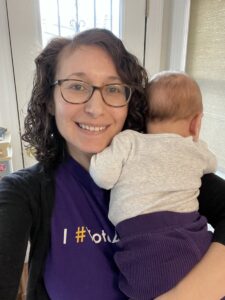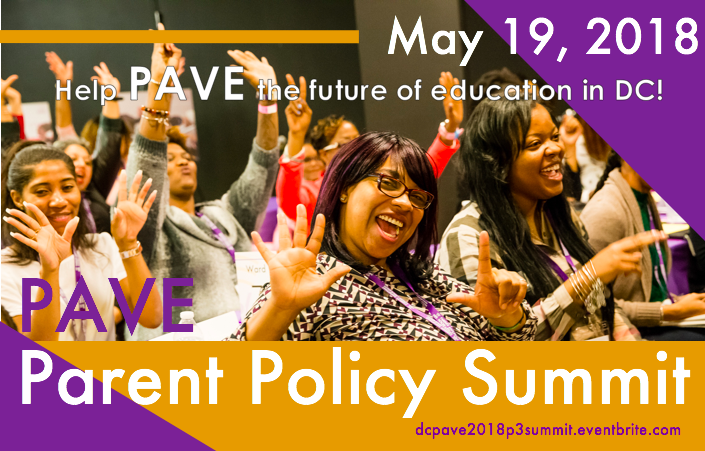 Growing up, were you the kind of person who was first to raise your hand to present to the class, or who liked to get in debates and voice your opinion? Not me.
Growing up, were you the kind of person who was first to raise your hand to present to the class, or who liked to get in debates and voice your opinion? Not me.
I was the kid who always had to be taken aside by the teacher and reminded that class participation was a component of my grade and who hoped I might fall ill and lose my voice instead of having to summon the courage to stand up in front of my class and speak. Not much has changed in adulthood. I still much prefer to be the person working behind the scenes and feel a wave of anxiety at the prospect of public speaking.
So when I first learned about PAVE, I was excited about the idea of being part of a community of parent leaders and working as a coalition to create meaningful change in our city, and I hoped I’d be able to work the way I always had — helping to draft parent priorities, brainstorming opportunities to appeal to local policymakers, and supporting my fellow parent leaders from the wings.
I also knew that one of our signature events was DC Parent Voice and Choice Week (DCPVCW), an opportunity to sit down with city leaders (virtually for the last two years but at the Wilson Building before the pandemic) to share our experiences and policy priorities and explore ways to work with district policymakers to fund and implement these policies.
When this year’s DCPCVW rolled around, I was asked to take on roles posting to social media and asking questions to policymakers during our meetings. My instinct to demur flared up once again, but I was reminded of the quote that “if you’re not at the table, you’re on the menu.” Throughout the city, we continue to see the outcomes of policy decisions that did not and do not center the needs and perspectives of the communities most impacted by those policies, so we know that parents have to be at the table — both literally and figuratively — to ensure that policies that support students and families are prioritized.
I was glad I took my (figurative) seat at the table and grateful to be part of such a supportive parent-powered community. We come to those meetings prepared to share personal and often deeply painful stories about our own experiences and the experiences of our children, but we also come equipped with compelling data and evidence to further demonstrate the positive impacts of the policies we are advocating for and explain the potential consequences of not prioritizing these policies.
Too often, we see experts from outside of our city prioritized over our neighbors with lived experience and deep connections within our communities, but DCPVCW proved once again that DC families possess a wealth of knowledge and created a space to share that wisdom with our city’s leaders.
It was also powerful to hear how aligned the policymakers we spoke with were with our two top #ParentPriorities this year: School-Based Mental Health (SBMH) supports and Out-of-School Time (OST) programs. As we shared our own personal connections to these topics, we also heard from policymakers about their experiences with these issues and found common ground from which we can work to make progress on these important issues, including prioritizing them in the upcoming budget season.
But now that DCPCVW is over for 2022, it’s time to embark on our next steps from those meetings: following up with these policymakers and their staff and going deeper on the important conversations about SBMH and OST that we started last month.
As I and other PAVE parent leaders continue sharing more about our vision for education in DC and dig into the details of our policy priorities, we will hold elected officials accountable to the commitments they made during DCPCVW in the city’s budget for the coming fiscal year.
While I haven’t always found it easy to use my voice, I was proud to speak up during this year’s DCPCVW, even if my voice shook a little, to advocate for my children and for kids all across the city.
By Marisa Goldstein, Ward 4 PLE Board member

